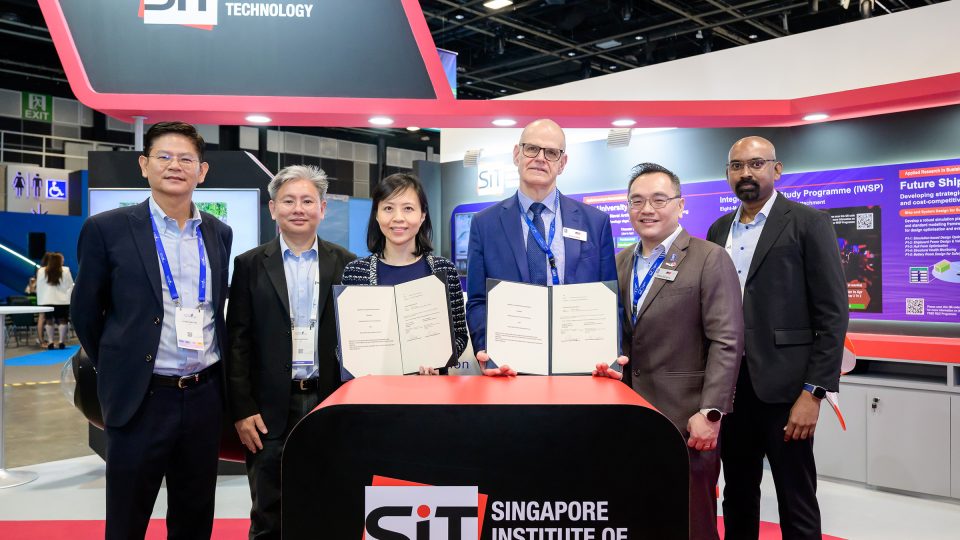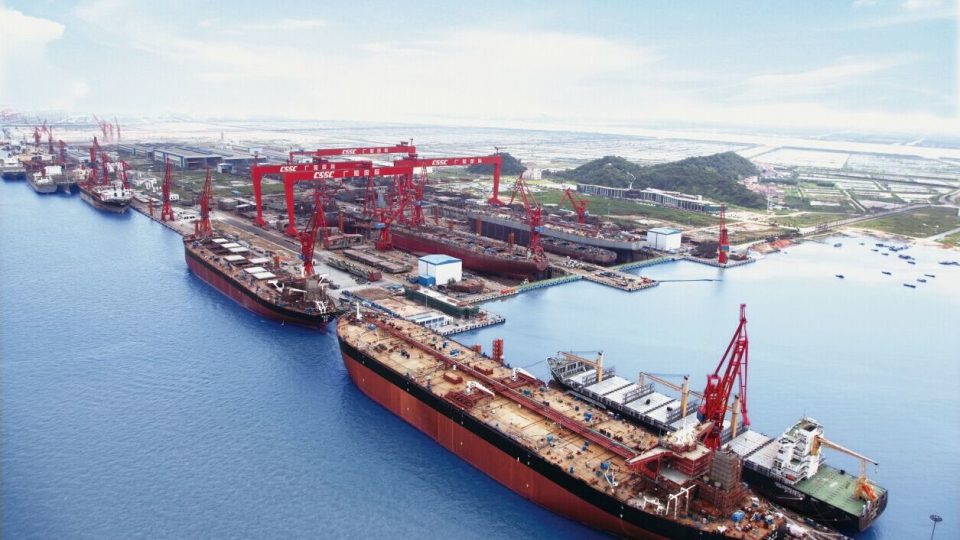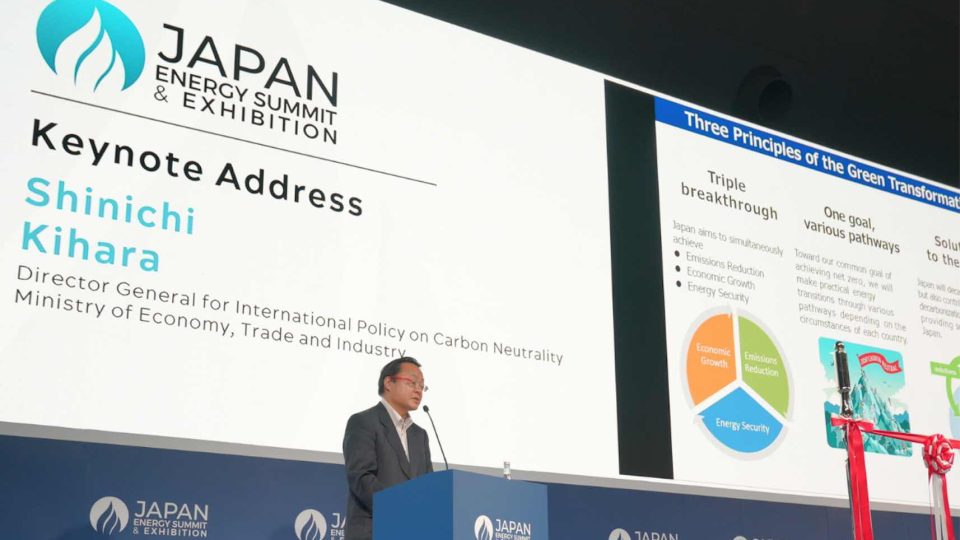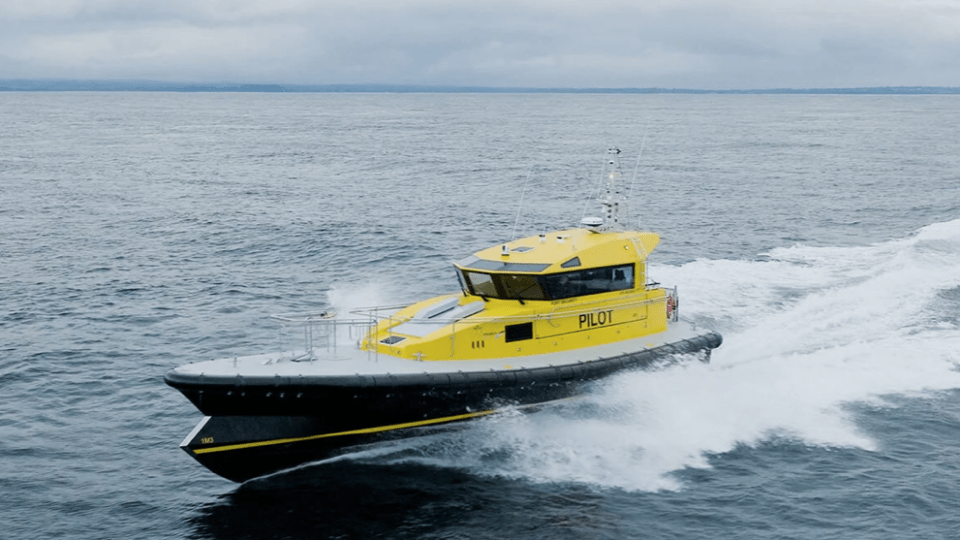Liberty Lines commissions ferry with mtu hybrid system from Rolls-Royce
Denise Kurtulus, Vice President Global Marine at Rolls-Royce Power Systems, says: “Liberty Lines is the ideal partner to demonstrate the progress that can be made towards environmentally and climate-friendly ship operation. Together with Liberty Lines, Armon and Incat Crowther, we have developed a passenger ferry that will set new standards in this category of shipbuilding.”
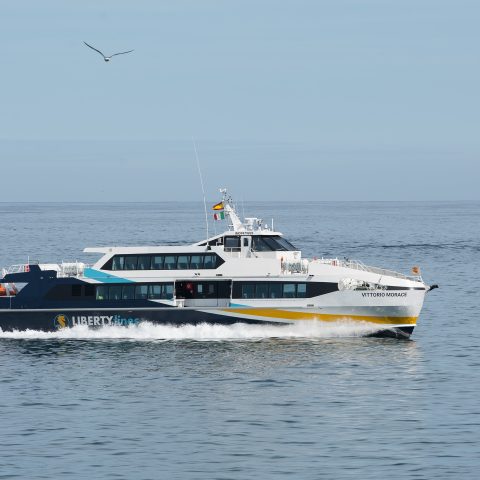
On 27 June 2024, the Italian shipping company Liberty Lines ceremonially launched the world’s first hybrid fast ferry of this category and size in Trapani, Sicily, powered by an mtu hybrid propulsion system from Rolls-Royce. The 39.5 meter long ship has a capacity of 251 passengers, reaches a speed of over 30 knots and will significantly reduce the impact of ship operations on the environment. The “Vittorio Morace”, built by the Spanish shipyard Astilleros Armon and designed by Incat Crowther, is the world’s first IMO HSC (High-Speed Craft) hybrid fast ferry of this size and has been classified as a “Green Plus” ship by the Italian classification society RINA.
The new member of the fleet, named after the founder of the shipping company, is the first of nine ferries that will operate between Sicily and the neighbouring Aeolian and Egadi islands as well as between the Italian mainland, Croatia and Slovenia.
The battery-electric part of the drive is used for locally emission-free driving in the harbour area and as a booster. CO2 emissions are reduced by the particularly efficient mtu Series 4000 diesel engines which can also run on the renewable diesel (HVO, hydrotreated vegetable oil). Its use can lower the CO2 footprint by up to 90 per cent. Furthermore, the comparatively low overall weight of both the engines and the hybrid drive system contributes to high vessel propulsion efficiency, thereby reducing fuel consumption and emissions.
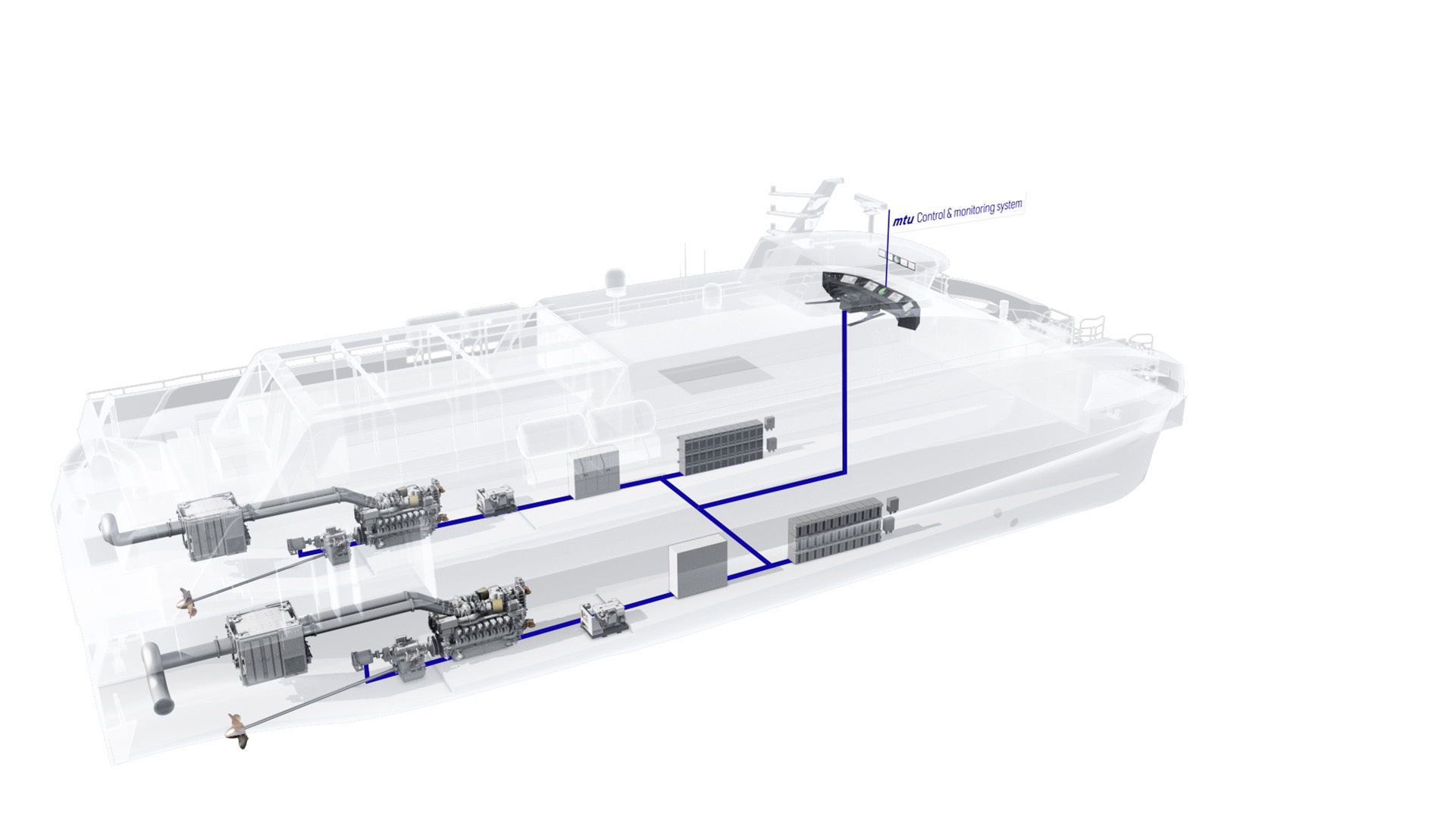
Gennaro Carlo Cotella, CEO of Liberty Lines, says: “We chose mtu hybrid systems because we want to minimise the environmental impact of our new fleet while not compromising on the high speed and range of our vessels. As we have trusted mtu products for decades, we have also opted for this partnership for our major fleet renewal.”
Denise Kurtulus, Vice President Global Marine at Rolls-Royce Power Systems, says: “Liberty Lines is the ideal partner to demonstrate the progress that can be made towards environmentally and climate-friendly ship operation. We have used all possibilities and combined highly efficient combustion engines with exhaust gas aftertreatment, batteries and electric motors with an intelligent electronic control system to create an emission-optimised system. Together with Liberty Lines, Armon and Incat Crowther, we have developed a passenger ferry that will set new standards in this category of shipbuilding. We are proud of this. Our goal is to help this technology achieve a breakthrough.” The Marine business is one of the five key strategic initiatives presented by the Power Systems division at the Rolls-Royce Capital Markets Day in November 2023.




